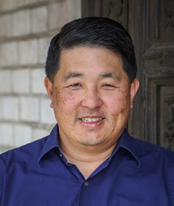Derek Okada, Senior Manager, Policy & Planning, Southern California Edison (SCE), provided insight on several key industry trends for Parks Associates’ eighth-annual Smart Energy Summit: Engaging the Consumer, which will be held February 20-22 at the Four Seasons Hotel in Austin, Texas:
What do you think is the most challenging issue for your company as it relates to the residential energy management market?
Customer adoption of energy management technologies is growing but is still relatively small  due to more immediate interest in other IoT features (security, comfort, health, etc.). Likewise, customer awareness and understanding of home automation is limited since interoperability remains a challenge across manufacturers due to varying open and proprietary standards. Additionally, from an energy efficiency perspective, residential customers have relatively small load profiles compared to non-residential customers, requiring significant investments to see meaningful savings results at the grid level.
due to more immediate interest in other IoT features (security, comfort, health, etc.). Likewise, customer awareness and understanding of home automation is limited since interoperability remains a challenge across manufacturers due to varying open and proprietary standards. Additionally, from an energy efficiency perspective, residential customers have relatively small load profiles compared to non-residential customers, requiring significant investments to see meaningful savings results at the grid level.
What are the major challenges that your business must address in 2017? In 2020?
Demand Side Management is rapidly changing in California due to: ambitious public policy goals to reduce GHG, rapid penetration of Distributed Energy Resources (DERs) and renewable generation, a shift in consumer choice for how they procure and manage their energy and changes to DSM Program Administration wherein up to 60% of the EE portfolio will be designed, delivered and implemented by third-parties. Additionally, the transition to Time-of-Use (TOU) pricing for Residential customers will require a new way of customer thinking about making financially-smart energy decisions.
What are the major barriers impacting consumer adoption of energy related products and services?
Savings for energy related products and solutions is still relatively small and data to support these savings claims is still emerging. These outcomes limit opportunities to create incentives via EE programs. However, we have seen alternative pathways toward increasing adoption of energy related products and services via DR incentives for grid-related needs (e.g., Smart Thermostats). Education and awareness of energy management solutions is also an area of opportunity with third-party partners (e.g., Smart Thermostat OEMs).
What are the biggest opportunities for the smart home industry to work with the utility industry?
New legislation (AB 793) encourages the offering of incentives and education for Energy Management Technologies (EMTs) and presents new opportunities to pilot, test and launch new EMT solutions across products and services where cost effective and where persistent savings can be proven. Innovation requires partnering with the smart home industry to identify and test solutions that support DSM (EE, DR, TOU) goals.
Future RFP solicitations will encourage market participants to offer up solutions to obtain energy savings for our EE portfolio.
What impact will smart products and smart home services have on consumer adoption of energy solutions?
As customers adopt smart home products (e.g., security, health care, etc.) they have an opportunity to see the benefits of home automation and remote monitoring which energy management technologies also offer similar solutions. Likewise, as customers adopt other energy related technologies (EVs, battery storage, solar), they may have increasing need to manage their energy use (and production) across solutions. DSM programs can provide some benefits for customer adoption in sharing of these customer adopted technologies with DSM programs.
Okada will speak on the session “Utility Perspectives on Incentives” on Monday, February 20 at 4:30 p.m.
For more information on the Smart Energy Summit, visit www.SES2017.com or register by clicking here.

 due to more immediate interest in other IoT features (security, comfort, health, etc.). Likewise, customer awareness and understanding of home automation is limited since interoperability remains a challenge across manufacturers due to varying open and proprietary standards. Additionally, from an energy efficiency perspective, residential customers have relatively small load profiles compared to non-residential customers, requiring significant investments to see meaningful savings results at the grid level.
due to more immediate interest in other IoT features (security, comfort, health, etc.). Likewise, customer awareness and understanding of home automation is limited since interoperability remains a challenge across manufacturers due to varying open and proprietary standards. Additionally, from an energy efficiency perspective, residential customers have relatively small load profiles compared to non-residential customers, requiring significant investments to see meaningful savings results at the grid level.